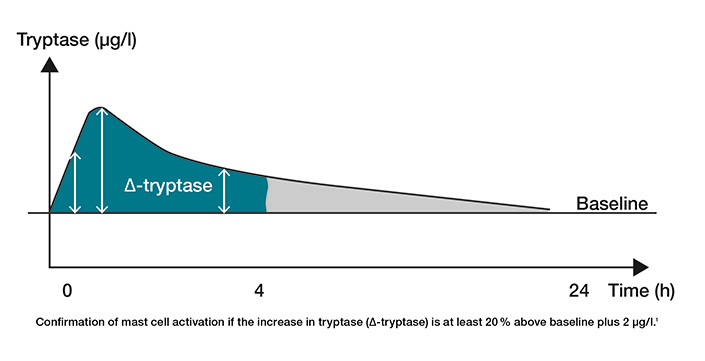26May
Clinical Utility of ImmunoCAP Tryptase
Last updated: 03rd February, 2022
Products are for professional/laboratory use only.
ImmunoCAP Tryptase is a well-known clinical marker in explaining severe reactions cause by insect venoms, drugs, or in systemic mastocytosis. High-baseline tryptase levels can indicate if a person may be predisposed to severe anaphylactic reactions; and precautionary measures, e.g., an epinephrine autoinjector and specific immunotherapy, may be considered.
Tryptase and Venoms
- Tryptase can support the clinical assessment regarding need for therapy in patients being considered for venom-specific immunotherapy after previous reactions to bee and/or wasp stings
- Tryptase can help guide VIT treatment and in deciding on lifelong treatment
Typtase and Drug Reactions
- Tryptase levels can assist in finding the cause of a severe reaction which can occur during surgery
- Measurements of transiently elevated tryptase levels directly after the reaction can help to identify if the reaction was due to mast cell activation
Typtase and Mastocystosis
- Tryptase baseline levels reflect the mast cell burden in the body
- Together with clinical findings, ImmunoCAP Tryptase test results can help to rule in or rule out systemic mastocystosis
- WHO (World Health Organization) minor diagnostic criterion for systemic mastocytosis includes a persistently elevated baseline serum tryptase value above 20 μg/l (1 μg/l = 1 ng/ml)

f








